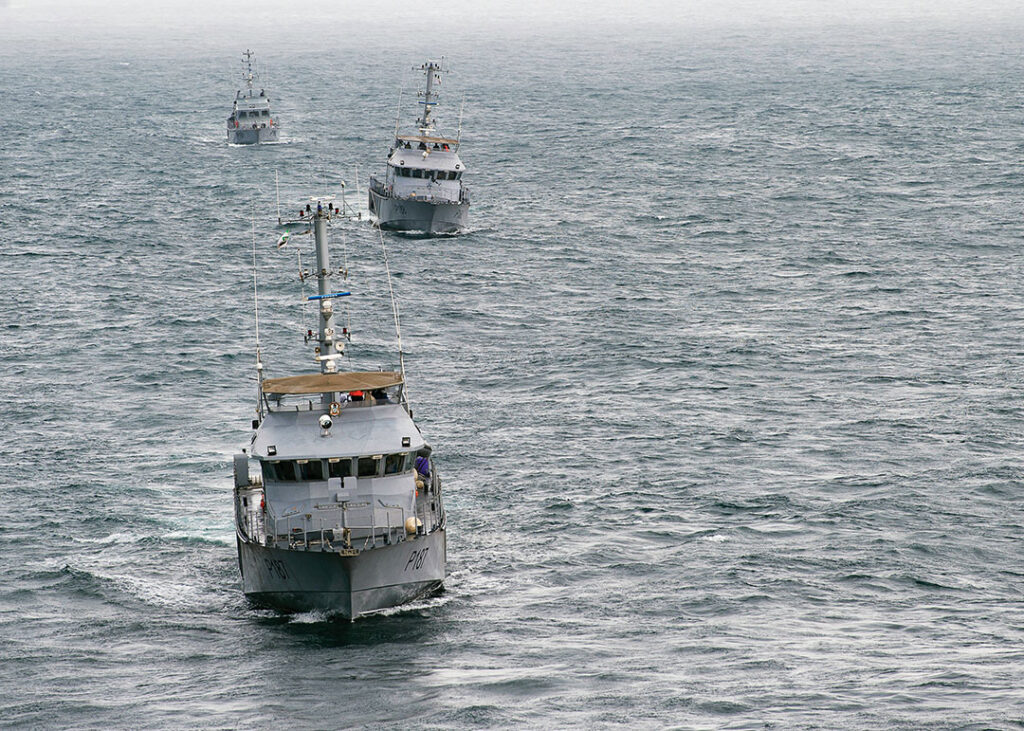The Nigerian Navy aims to use artificial intelligence to strengthen its operational capacity and keep pace with evolving technological advancements in the maritime industry.
Chief of the Naval Staff Vice Adm. Emmanuel Ogalla made the announcement during the presentation of a paper by navy participants at the National Defence College. Ogalla said the Nigerian Navy is embracing AI because it and other emerging technologies increasingly are used in ship construction.
“The Nigerian Navy must continue to adopt and integrate these technologies in order to maintain a competitive edge during operations,” Ogalla said in a report by Nigerian newspaper Leadership.
AI can improve a Navy’s decision-making processes, such as predicting the most fuel-efficient way to operate a vessel. It can be included in a ship’s navigation system, radar operations or threat-detection systems to help operators process information faster.
The technology has grown in popularity as threats in the maritime domain have multiplied and become increasingly complex.
“Navies and warships in general have had a high degree of automation for a long time, with the most commonplace use of AI being in the Combat Management System (CMS),” Matthew Caris, senior director at Avascent, a global strategy consulting company, told Armada International.
In automatic mode, CMS can detect a target and identify, classify and prioritize targets before deploying weapons, although people are involved in decisions about when and how to use weapons.
Harnessing AI and other technologies will help the Nigerian Navy more effectively respond to a range of maritime threats such as illegal, unreported and unregulated fishing (IUU); drug smuggling; and piracy. Nigeria now loses about $70 million annually to IUU fishing perpetrated by a host of foreign fleets, mostly Chinese.
It is a scourge that plagues West Africa, the world’s epicenter for IUU fishing. It costs the region an estimated $10 billion a year, according to a 2023 report by the Stimson Center, a think tank.

